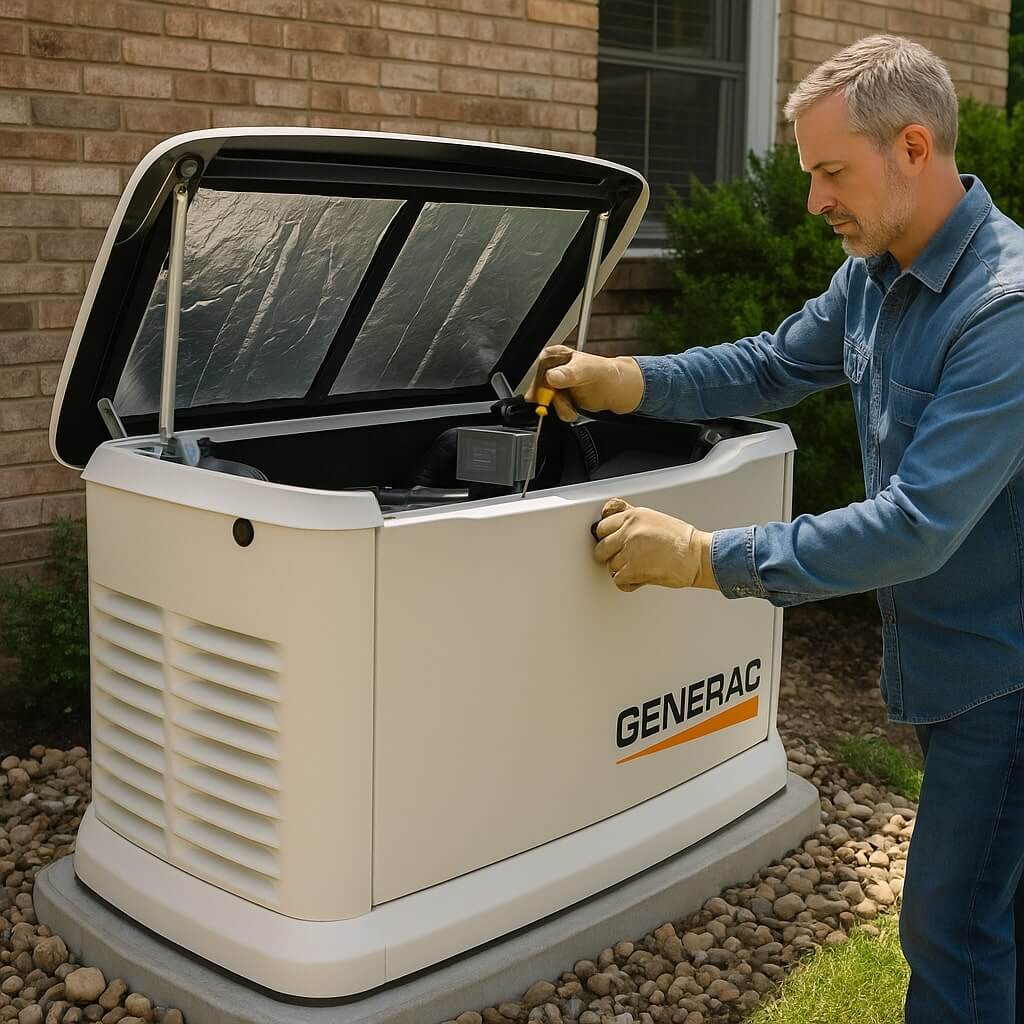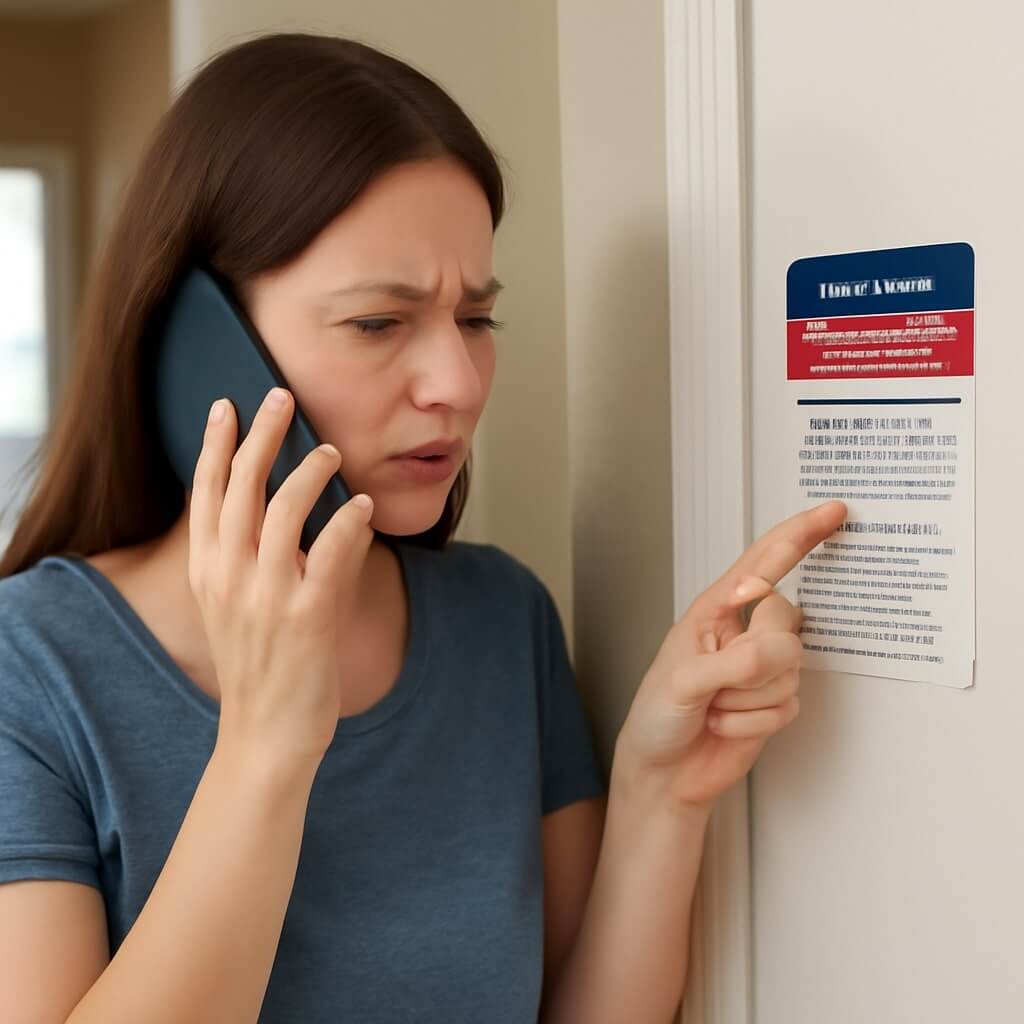A home maintenance contract is a strategic tool for homeowners like you, designed to safeguard your property investment. It clearly outlines responsibilities for essential upkeep, covering services such as plumbing, electrical, and HVAC maintenance. By understanding the specifics of these contracts, you can prevent costly repairs and enhance the longevity of your home systems. But what should you consider when choosing the right contract for your needs? Let’s explore further.
Key Takeaways
- A home maintenance contract is an agreement that outlines the responsibilities of homeowners for regular upkeep and repairs of their property.
- These contracts typically cover services like plumbing, electrical work, HVAC maintenance, and general repairs.
- Home maintenance contracts help prevent costly repairs by ensuring timely inspections and maintenance of home systems.
- They provide peace of mind by guaranteeing fixed costs and predictable budgeting for home upkeep expenses.
- Choosing the right contract involves assessing service offerings, provider reliability, and understanding any exclusions in the agreement.
Understanding Home Maintenance Contracts

When you consider the complexities of home ownership, understanding home maintenance contracts becomes essential for protecting your investment.
These contracts clarify homeowner responsibilities, ensuring you know what’s expected regarding upkeep. They often outline specific tasks and the frequency of maintenance scheduling, helping you stay proactive rather than reactive.
By having a maintenance contract, you can prevent costly repairs and extend the life of your home’s systems and structures. It’s vital to review the terms carefully, so you’re aware of what’s covered and any potential exclusions.
Ultimately, this knowledge empowers you to make informed decisions about your property’s care.
Key Services Typically Included
When you consider a home maintenance contract, it’s essential to know what services are typically included.
Most contracts cover plumbing services, electrical system inspections, and HVAC maintenance tasks to guarantee your home runs smoothly.
Understanding these key components can help you make an informed decision about your maintenance needs.
Plumbing Services Covered
Plumbing services covered in a home maintenance contract typically include essential repairs and installations that keep your water systems running smoothly.
You’ll benefit from services like fixing leaks, unclogging drains, and repairing toilets to address plumbing emergencies promptly.
Routine inspections are also included, ensuring that potential issues are identified before they escalate, saving you time and money.
Additionally, installation of fixtures, such as faucets and water heaters, is often part of the contract.
Electrical System Inspections
Electrical system inspections in a home maintenance contract typically cover a range of critical services designed to guarantee your home’s electrical safety and efficiency.
You’ll benefit from regular checks of wiring, outlets, and circuit breakers, ensuring everything meets safety standards. The inspection frequency is usually set annually or biannually, depending on your home’s age and usage.
By addressing potential issues early, you can prevent costly repairs and hazards. These inspections also include testing smoke detectors and ensuring proper grounding, providing you peace of mind.
Prioritizing electrical safety will help keep your home secure and your family protected.
HVAC Maintenance Tasks
Just as regular electrical system inspections guarantee your home’s safety, HVAC maintenance tasks are essential for keeping your heating and cooling systems running efficiently.
These tasks typically include routine HVAC inspections, where technicians check for any issues that could lead to costly HVAC repairs. They’ll clean or replace filters, check refrigerant levels, inspect ductwork, and verify your system cycles properly.
Regular maintenance not only extends your system’s lifespan but also maximizes energy efficiency, saving you money on utility bills.
Benefits of a Home Maintenance Contract

A home maintenance contract can save you money in the long run by catching issues before they escalate into costly repairs.
With regular preventative maintenance, you’ll not only protect your home but also enhance its value over time.
Investing in such a contract guarantees peace of mind while safeguarding your property.
Cost Savings Over Time
While homeowners often overlook the long-term financial benefits of a home maintenance contract, investing in one can lead to significant cost savings over time.
By locking in services at a fixed rate, you can avoid unexpected repair costs that can derail your budget planning. Regular maintenance helps catch issues before they escalate, leading to long term savings that far exceed the initial investment.
Plus, knowing your home’s upkeep is managed allows for more accurate budgeting, freeing you from surprise expenses.
Ultimately, a home maintenance contract is a smart choice for maintaining your property and securing your financial future.
Preventative Maintenance Advantages
Since regular maintenance is often neglected, a home maintenance contract becomes vital for homeowners looking to secure their property remains in top condition. With scheduled preventative checkups, you can catch issues before they escalate, saving you time and money in the long run. Maintenance schedules guarantee that essential tasks are completed consistently, enhancing your home’s longevity and safety.
| Advantage | Description |
|---|---|
| Early Problem Detection | Identify issues before they become costly. |
| Consistent Upkeep | Maintain a regular schedule for all systems. |
| Increased Safety | Reduce hazards through regular inspections. |
Increased Property Value
Investing in a home maintenance contract not only guarantees your property remains in excellent condition but also greatly boosts its market value.
Regular upkeep assures your home stays appealing to potential buyers, aligning it with favorable market trends. When it comes time for a property appraisal, a well-maintained home often receives a higher valuation, reflecting its enhanced appeal and functionality.
Additionally, you can avoid costly repairs that might deter buyers, making your investment even more worthwhile. By prioritizing maintenance, you’re not just protecting your home; you’re actively increasing its worth in an ever-evolving real estate market.
How to Choose the Right Contract
How do you decide which home maintenance contract is best for you? Start by conducting thorough contract comparisons to identify what services each plan offers.
Look for options that provide service flexibility, allowing you to customize your coverage based on your home’s specific needs.
Assess the reputation and reliability of the service providers, checking reviews and testimonials. Pay attention to response times for emergencies and the availability of technicians.
Finally, guarantee the contract aligns with your lifestyle and maintenance preferences, so you can enjoy peace of mind knowing your home is well cared for without unnecessary limitations.
Cost Considerations
When evaluating home maintenance contracts, understanding the costs involved is essential for making an informed decision. Start by requesting a detailed cost breakdown from potential providers. This should include fees for regular maintenance, emergency services, and any add-ons.
Common pricing models include monthly subscriptions or annual payments, each with its own advantages. Monthly plans often seem more manageable, but annual contracts may save you money in the long run. Be sure to compare these options and understand what services are covered to avoid unexpected expenses.
With this clarity, you can choose a contract that fits your budget and maintenance needs.
Common Exclusions in Contracts
While most home maintenance contracts cover a range of services, it’s essential to be aware of common exclusions that could leave you unprepared for unexpected issues.
Understanding these contract limitations can save you from surprises later on. Here are some typical service exclusions to watch for:
- Pre-existing conditions or damage
- Cosmetic repairs not related to functionality
- Maintenance due to neglect or lack of care
- Upgrades or modifications to existing systems
Signs You Might Need a Home Maintenance Contract
Are you noticing increasing maintenance issues around your home? If you’re struggling to keep up with homeowner responsibilities, a home maintenance contract might be right for you. Here are some signs to take into account:
| Signs You Need a Contract | Impact on Maintenance Priorities |
|---|---|
| Frequent repairs needed | Diverts focus from other tasks |
| Aging appliances | Higher risk of unexpected issues |
| Limited time for DIY | Neglecting essential upkeep |
| Stress over maintenance | Compromises home safety |
Recognizing these signs can help you prioritize your maintenance needs, ensuring your home remains safe and functional.
Frequently Asked Questions About Home Maintenance Contracts

Curious about what a home maintenance contract entails? Here are some frequently asked questions to clarify:
- What contract types are available? You can choose from thorough, preventive, or specific service contracts.
- How often will services be provided? Service frequency varies by contract type; some offer monthly, quarterly, or annual visits.
- What’s included in the contract? Coverage typically includes plumbing, electrical work, HVAC, and general repairs.
- Are there any exclusions? Always read the fine print, as some contracts may exclude specific appliances or areas of the home.
Understanding these aspects helps you make informed decisions about home maintenance contracts.
Conclusion
To summarize, a home maintenance contract can be a smart investment for protecting your property and ensuring it remains in top shape. By understanding the key services included and the benefits they provide, you can make informed choices that save you time and money. Remember to evaluate your needs and budget when selecting a contract, and stay aware of common exclusions. With the right agreement in place, you’ll enjoy peace of mind knowing your home is well cared for.




